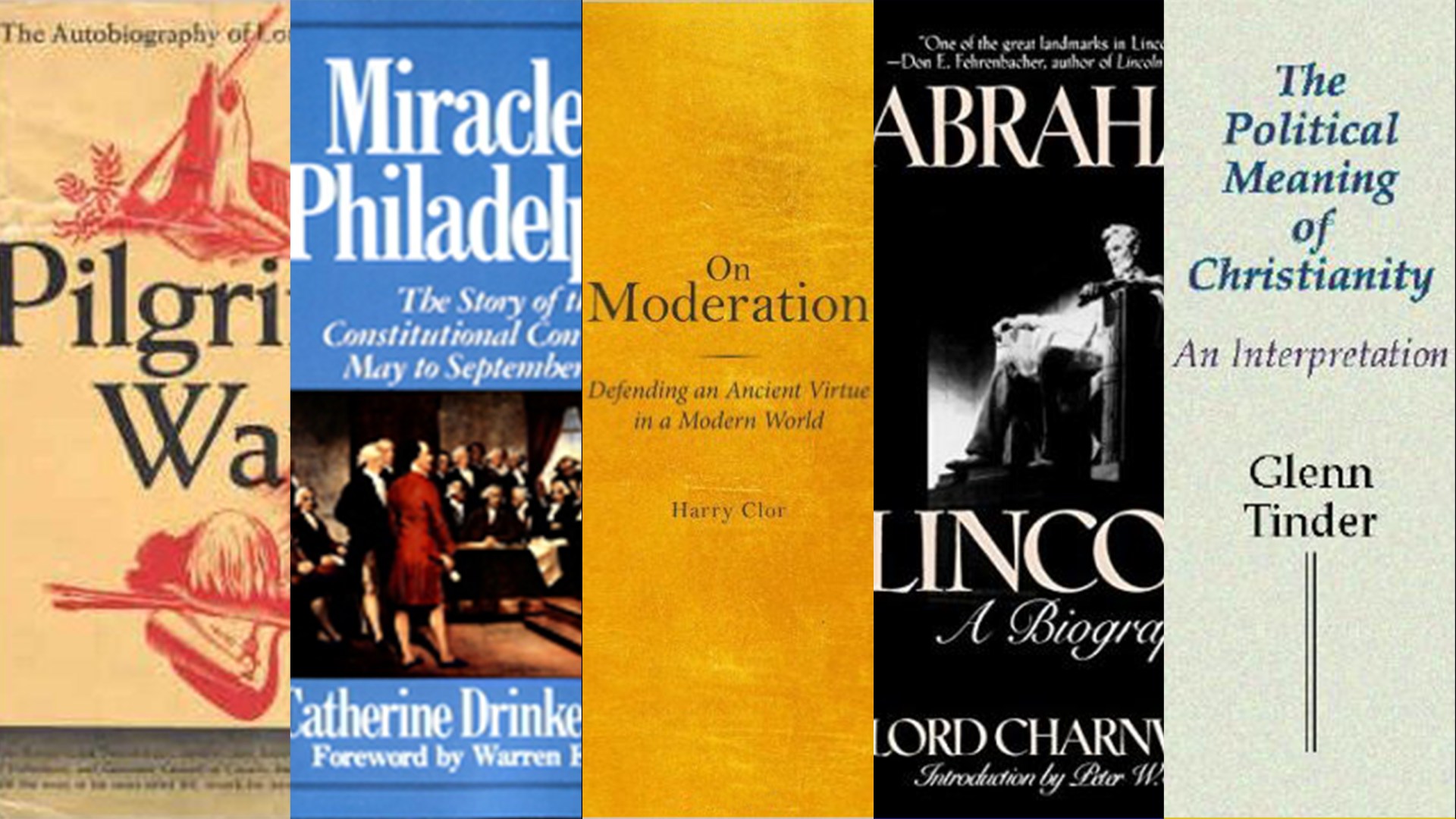Campaign season has a way of raising everyone’s blood pressure, inflaming partisan passions and cultural resentments. How can we step back from a ferocious news cycle and find enduring wisdom on how to approach the task of choosing a national leader? CT asked Peter Wehner, senior fellow at the Ethics and Public Policy Center and a veteran of three Republican presidential administrations, to pick 5 books to read before voting in a presidential election.
Pilgrim’s Way, by John Buchan
Pilgrim’s Way is a stirring, exquisitely written memoir. Born in Scotland in 1875, Buchan attended Oxford, served in Parliament, and was Governor General of Canada. (He was also a novelist.) His descriptions of contemporaries are affectionate, insightful, and uplifting. “Public life,” he wrote, “is regarded as the crown of a career, and to young men it is the worthiest ambition. Politics is still the greatest and the most honourable adventure.” Buchan, a Christian, believed in the nobility of politics—and understood both its possibilities and its limitations.
Miracle at Philadelphia, by Catherine Drinker Bowen
A riveting, nuanced account of the Constitutional Convention in Philadelphia. With vivid personality portraits, Bowen makes you feel the epic drama. We learn about the intense and complicated negotiations and how close the effort came to failing. Miracle at Philadelphia will help Americans better understand how the lessons of 1787 still apply. To those who view compromise as weakness, Bowen replies that “in the Constitutional Convention the spirit of compromise reigned in grace and glory; as Washington presided, it sat on his shoulder like the dove.”
Abraham Lincoln, by Lord Charnwood
Published in 1916, this remains the best biography of America’s greatest president. Lincoln was a complex man of great depth. He was stunningly eloquent, strong, wise and humane, and uncorrupted by great power. Largely self-taught, Lincoln became the greatest interpreter of the American founding. He loved the union and hated slavery, yet he was, as Lord Charnwood writes, “the one man who quite purged his heart and mind from hatred or even anger towards his fellow countrymen of the South.” A statesman of the highest order, Lincoln dedicated his life to justice, embodied grace, and helped reconcile a riven nation. He personified the qualities we hope to find in a president.
On Moderation: Defending an Ancient Virtue in a Modern World, by Harry Clor
A marvelous meditation on moderation rightly understood. Clor makes the case for proportionality, prudence, and situational judgment. He warns against dogmatism, absolutism, and intolerant passions. He also writes compellingly about the importance of practicing civility and restraining anger. “Self-discipline is imperative because, ultimately, harmony in the soul is a better condition than discord in the soul, however vitalizing discord might be.” Great political leaders possess tempered judgments. Moderation is a neglected virtue that needs to be revived in this fractious, intemperate age.
The Political Meaning of Christianity, by Glenn Tinder
Well-reasoned, impressively balanced, and theologically sophisticated, this book urges Christians to adopt a “prophetic stance”—one in which our faith informs our politics but is not co-opted by any party or institution. Political inaction can be wrong, while political involvement can be treacherous and injure one’s Christian witness. A critic of secularism, Tinder argues that “there is no greater error in the modern mind than the assumption that Christ, the God-man, can be repudiated with immunity.” Attitudes toward ultimate reality shape one’s political commitments much more profoundly than one’s views on, say, corporate tax rates.










